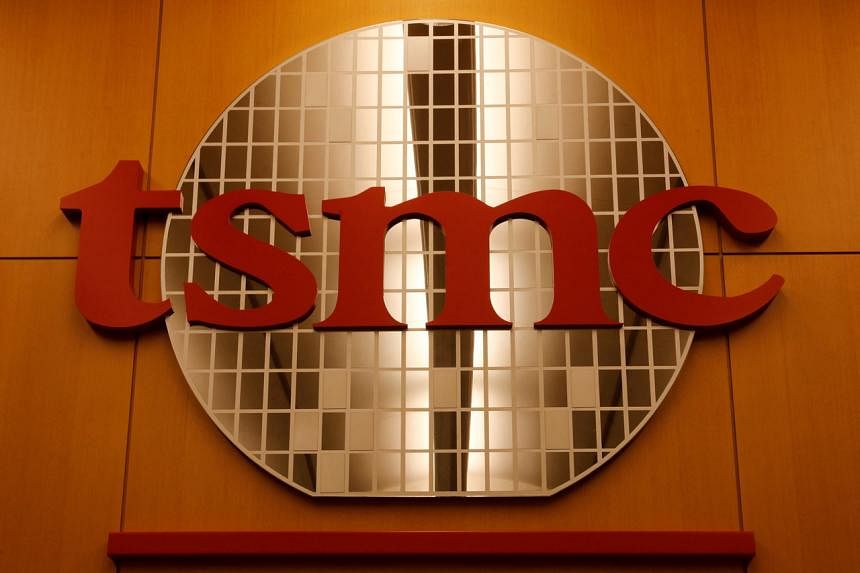TOKYO - Chip-related stocks in Japan, South Korea and Taiwan slumped on Tuesday as a move by the Biden administration to curb China’s access to US semiconductor technology sparked a sell-off that has wiped out more than US$240 billion (S$345.7 billion) from the sector’s market value globally.
The United States announced the export curbs last Friday, and there have been suggestions that similar actions may be deployed in other countries to ensure international cooperation.
Taiwan Semiconductor Manufacturing Company plunged more than 7 per cent, the most since May 2021, while Samsung Electronics dropped the most in a year. Tokyo Electron lost as much as 5.8 per cent.
Markets in South Korea, Japan and Taiwan were shut on Monday for holidays, when the Philadelphia Stock Exchange Semiconductor Index sank to its lowest close since late 2020 following a two-day rout of more than 9 per cent.
South Korea’s won slumped as much as 1.6 per cent versus the US dollar, while the Taiwan dollar dropped 0.7 per cent. Stock benchmarks in the two nations were the worst performers in Asia on Tuesday.
The latest curbs are likely to fuel a knock-on impact across the sector’s supply chain and add to a growing list of challenges for technology shares including a hawkish Federal Reserve and tensions across the Taiwan Strait.
“The latest US move would prompt China to move faster in fostering the domestic chip industry,” said analyst Akira Minamikawa at research firm Omdia.
Japanese firms should continue trading with Chinese firms with goods that are not restricted because business is business, he said.
"But they should be ready for a future - maybe in a decade or two - when they lose all the Chinese customers as a result of the current tension dialling up speed of the Chinese efforts,” he added.
The ban is expected to have far-reaching implications. For companies with plants in China - including non-US ones - the rules will create additional hurdles and require government sign-off. South Korea’s SK Hynix is one of the world’s largest makers of memory chips and has facilities in China - part of a supply network that sends components around the world. Its shares slid 3.5 per cent on Tuesday before paring losses.
Chinese state media and officials have responded to President Joe Biden’s move in recent days, warning of economic consequences and stirring speculation about potential retaliation.
“With the latest measure, it would become difficult for China to manufacture and develop semiconductors because most semiconductor equipment are dominated by the US and its allies (such as Japan and the Netherlands),” Korea Investment and Securities analyst Chae Min-sook wrote in a report. “It is impossible to maintain the chip industry without adopting advanced equipment.”
The measures seek to stop China’s drive to develop its own chip industry and advance its military capabilities. They include restrictions on the export of some types of chips used in artificial intelligence and supercomputing, and tighten rules on the sale of semiconductor manufacturing equipment to any Chinese company.
The US is seeking to ensure that Chinese companies do not transfer technology to the country’s military and that chipmakers in China do not develop the capability to make advanced semiconductors themselves.
The curbs are a “big setback to China” and “bad news” for global semiconductors, Nomura Holdings analyst David Wong wrote in a note on Monday.
China’s localisation efforts may also be “at risk as it may not be able to use advanced foundries in Taiwan and South Korea”, he said. BLOOMBERG

